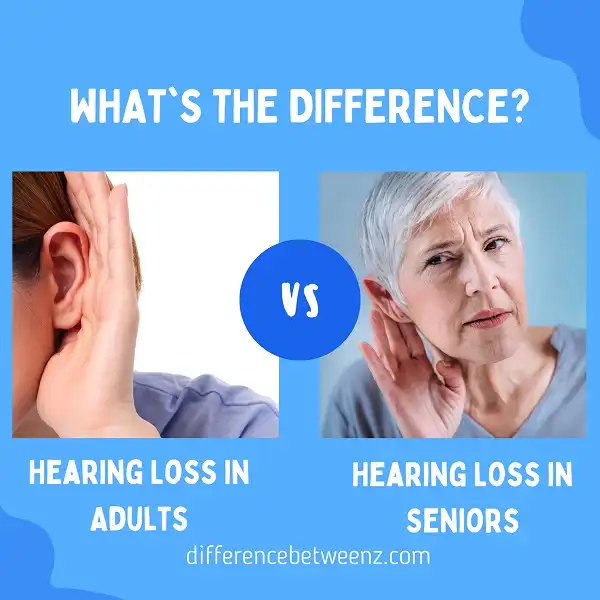As we age, our body experiences several changes in a way it functions and hearing loss might be one of them.
Loss of hearing is when you are unable to completely or partly hear sound in one or both of your ears. In the recent scenario, hearing loss is a common condition amongst people over 65 years of age. The conductive loss of hearing happens gradually over time. However, there are many cases where people past 50 years of age have experienced some degree of hearing loss.
Chronic exposure to loud noises and aging are significant factors contributing to old age deafness. Other factors include excessive earwax, family history, and disease can prevent your ears from conducting sounds.
Experts at Halo Health Care say most types of hearing loss in adults can’t be reversed. However, the affected and a hearing specialist can take necessary steps to improve what he/she hear. The age-related hearing loss is generally known as presbycusis. While the loss of hearing is not a life-threatening condition, if untreated, it can have a significant impact on the quality of life you are leading.
What are the causes of hearing the loss in adults?
Age-related deafness happens gradually over time. The changes in the inner ear due to several factors can cause the condition. These include:
• Damage to the tiny hairs inside the inner ear can cause hearing loss. The tiny hairs are responsible for transmitting vibrations to the brain
• Deviations in the way your brain processes sound and speech
• Damage to the nerves responsible for hearing
• Deviations in the blood flow to the ears
• Structural changes in the inner ear (sensorineural hearing loss)
Hearing loss in adults and seniors can also be caused by several other factors including:
• Smoking
• Family history
• Use of certain drugs and medications
• Exposure to loud noises
• Poor blood circulation
• Diabetes
Sensorineural Hearing Loss (SNHL)
This condition occurs when there is damage in the nerve pathways to the brain or to the inner ear structure. This type of deafness is usually permanent that makes even loud, normal, or distinct sounds seems unclear or muffled. SNHL generally occurs in older adults but can also result from:
• The growth of acoustic neuroma – a noncancerous tumor growth on the nerve connecting ear to the brain
• Meniere’s disease that affects the hearing and balance
• Trauma to the skull or head
• Working around loud noises
• Birth defects
What are the signs and symptoms of hearing loss in adults?
The symptoms of hearing loss in adults may include-
• Unable to understand conversations over the phone
• Unable to hear particular tones, especially the sound of women and children
• Asking people to repeat themselves
• Turning up the TVs volume louder than normal
• Difficult hearing in areas that are noisy
• Ringing in the ears
• Certain sound and tone seems overly loud
What are the complications?
Loss of hearing can have a major impact on the quality of your life. Older adults suffering from hearing loss can suffer from several complications. The most common ones include:
• Anxiety
• Depression
• A deceitful sense that others are angry
Diagnosing hearing loss in adults and seniors
If you are suffering from age-related hearing loss, it is advised to see your doctor to diagnose your condition. The doctor will run a full physical exam in order to rule out other factors causing deafness. The doctor may look inside your ear for infections using an otoscope.
In case, if the doctor is unable to detect any cause of the symptoms, he/she will diagnose you for age-related loss of hearing. In such cases, the doctor will refer you to you an ENT or a hearing specialist known as an audiologist to better understand your symptoms.
The audiologist has a dedicated lab and equipment to perfectly conducting the diagnosis and hearing test to help determine the degree of your hearing loss.
Treating hearing loss in the older adults
There is no permanent cure for age-related loss of hearing. If you are suffering from hearing loss, your concerned doctor will work to recover your hearing and quality of life. You will be recommended the use of:
• Assistive devices like telephone amplifiers
• Hearing aids to hear better
• Learning lip reading or sign language (in case, if the hearing loss is severe)
In other cases, you may require a cochlear implant. This is a surgical procedure where an electronic device is implanted into your ear. Although cochlear implants don’t restore normal hearing, it can make sounds rather louder. Cochlear implants are recommended only to those are almost deaf.
Final Words
Diagnosis is a significant aspect when you are suffering from loss of hearing. It will help the doctor determine the necessary treatment procedure that needed to be performed to tackle your age-related deafness. In most cases, there is no cure. But with the help of some assistive devices, you may be able to improve upon your hearing.


